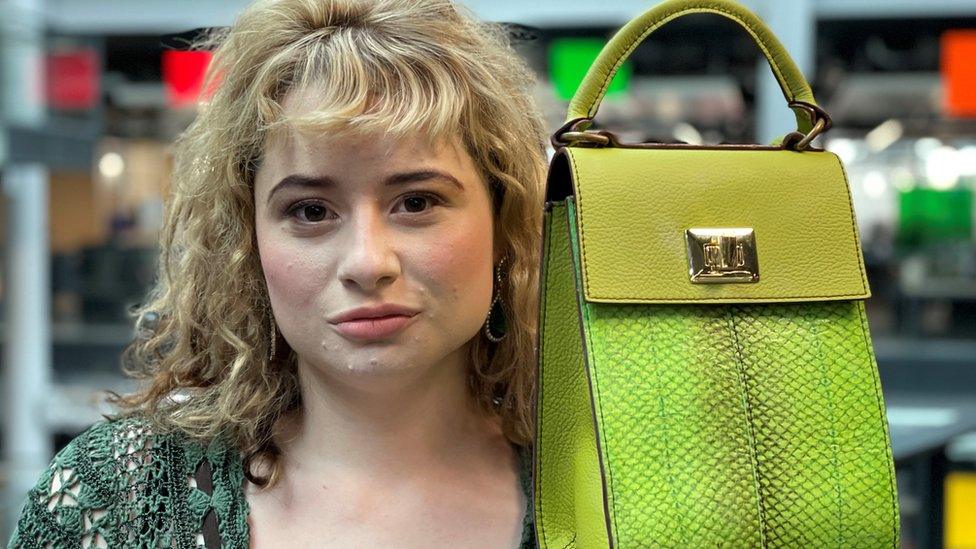Fashion: How cool and accessible is sustainability?
- Published
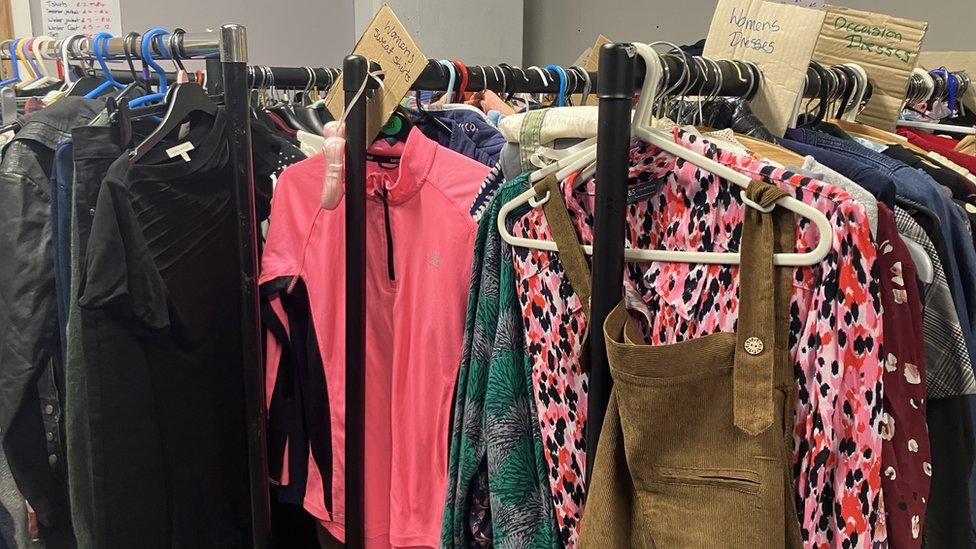
Charity Pembrokeshire Frame says its profits have gone up 300% after adopting a more sustainable approach to fashion
Sustainable fashion can still be cool and accessible, according to those who are pushing for change in the industry.
Pembrokeshire Frame, a charity aiming to support vulnerable people while reusing and reducing waste, said it had has seen a 300% rise in profits with more shoppers.
Elin Manon, a fashion designer from Swansea, said sustainable fashion was "much more accessible" with the increased use of resell sites such as Vinted and Depop.
Helen O'Sullivan of online sustainability platform SustFashWales said "shopping our own wardrobes" was a good place to start.
'It is not smelly or old'
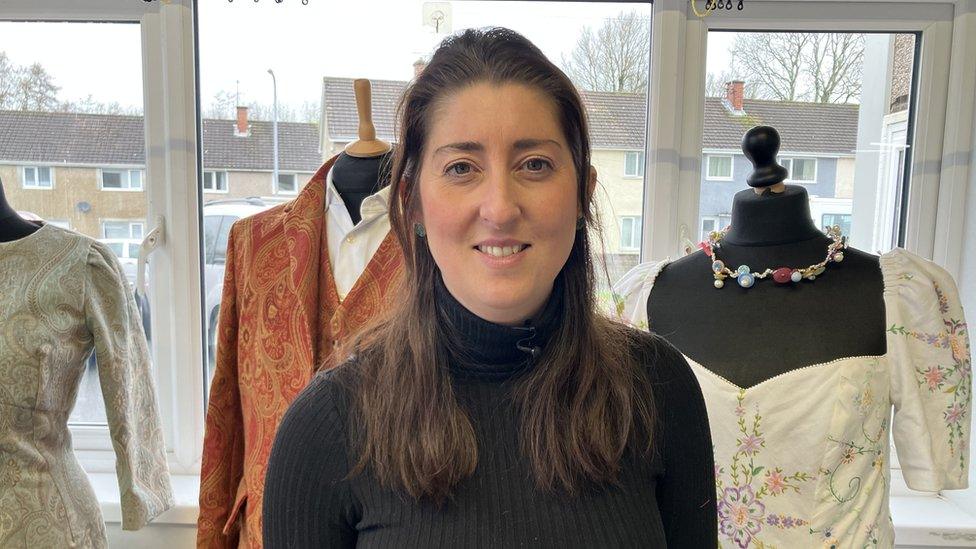
Former fashion designer Clare Johns says more people are engaging with sustainability
Frame aims to deliver support and upskill those in their community while helping the environment and fighting climate change.
It brought in former fashion designer Clare Johns as a sustainable fashion co-ordinator for its resell stores, who said attitudes were changing towards second-hand items.
"Frame has donations from the community," she said. "We take them in, we sort them, we take garments off them, or maybe the fabric is really lovely but damaged, and then we upcycle them," she said.
"I think that's generally what's trending nowadays, people want to be bespoke, they want to look unique and we can create that by being super sustainable."
As well as consciously trying to avoid fast fashion, the charity said the current financial climate had also changed people's attitudes and shopping trends.
Clare said: "During the cost of living crisis since we've revamped the shop, we've had almost a 300% increase in profits.
"People now realise why it's good to shop here and the amazing quality that they can get from charity shops.
"We've obviously changed that stereotype that it's not smelly, it's not old, you can get some amazing quality pieces at affordable prices."
As well as preventing the many kilos of clothes from heading to a landfill site, the skills that volunteers learn are also one of the project's main benefits.
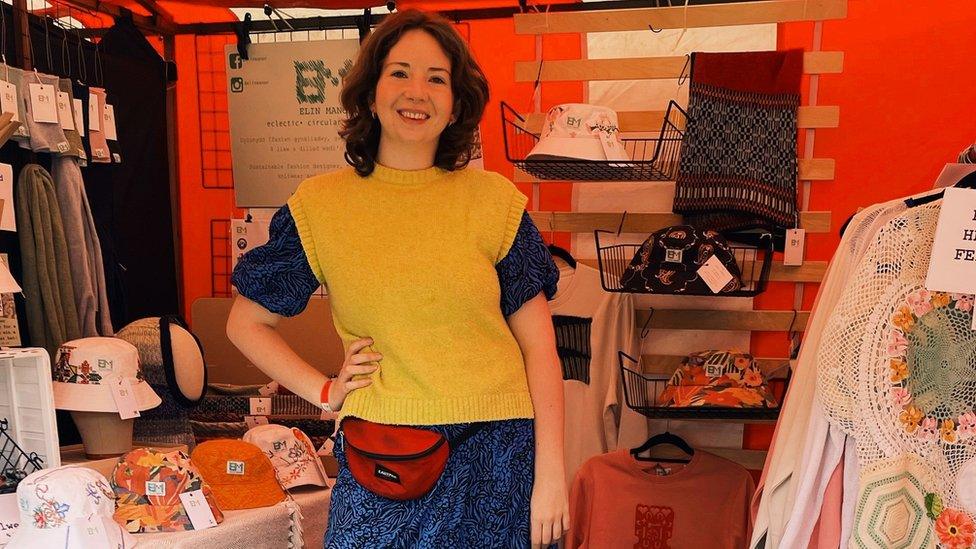
Elin Manon says people should shy away from colour and trends while being sustainable
Volunteer Maureen Wray said: "I just can't believe the donations we get, it's overwhelming the amount of clothing that is around.
"It just really got me thinking about how much stuff we need, how we buy and shop."
The charity said it had also been able to reduce the waste it sends to landfill from 20% to 5% as a result of new initiatives and it means clothes can be fit to purpose.
Elin, who makes colourful and patterned clothing, said people needed to know "sustainability doesn't mean boring".
She said online platforms meant sustainable fashion could be more size and disability inclusive and catered to individuals, drawing more people in.
How can fashion become more sustainable?
"A lot of people think that trends and sustainability do not go together, but I disagree.
"These trends are based on society and they're based on what happens politically, what happens in culture, so to not engage with that is not engaging in culture.
"But what I love about buying this way is you can still be fashionable. You can still have your own character without going to the high street.
"So, in that sense. I think it's a great move forward."
She admitted, however: "I'd like to see everything just slow down a bit".
"It used to be fast fashion, now it's super fast fashion. It's no longer a few collections a year, it's one a week or one a day.
"The cost to life, but also chemicals and getting it shipped all over the world, it's too much. We're being sold to 24/7."
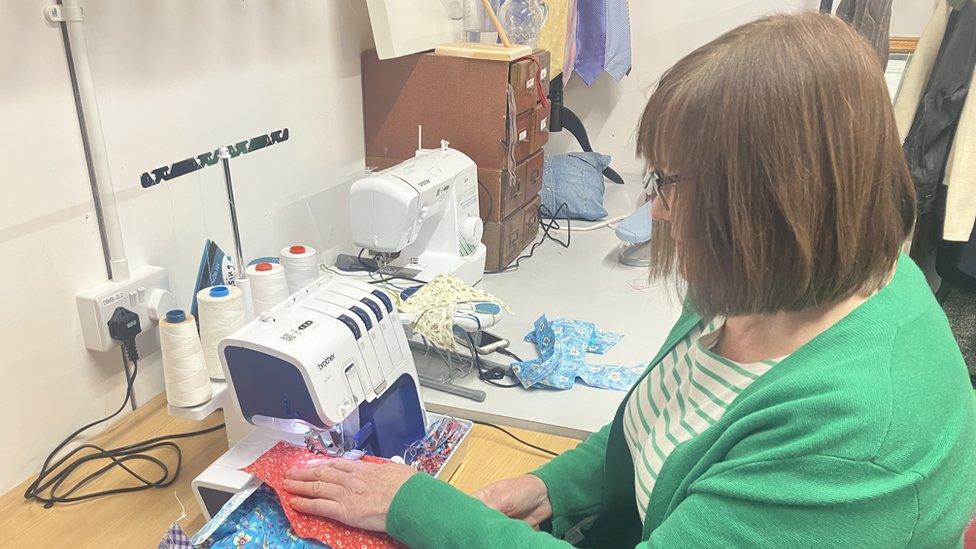
Repairing your clothes can reduce your carbon footprint from up to 30%, says climate action group WRAP
Helen founded online platform Sustainable Fashion Wales for more sustainable and transparent information about fashion in Wales and is working towards a PhD on the subject.
"My issue with sustainable fashion is there is yet to be a clear definition of what it really means," she said.
"Even the term doesn't actually make sense, because the fashion industry is currently broken, so why would we want to sustain that?"
She said there were enough clothes in circulation already and "we need to go back to basics".
"I think there is a still a stigma surrounding charity shops, online platforms such as Vinted and Depop are certainly paving the way for second-hand being more mainstream and cool.
"One of the best things I recommend people do if they want to make a change is to simply question whether or not they need it or just want it before they buy, and I actively encourage people to 'shop your wardrobe'.
"There are probably plenty of clothes lurking in there that you've forgotten about and will fall in love with again."
She said that meant looking after what you already have as according to climate action group WRAP, external, extending the life of your clothes by just a few months can reduce the carbon footprint of that garment by around 20-30%.
So she said simply washing your clothes at the correct setting or sewing back on a button can make all the difference and stop us reaching for fast fashion.
"Whilst second-hand is great for reducing the need for new, we really need to stop consuming so much in the first place," she said.


Related topics
- Published15 September 2023
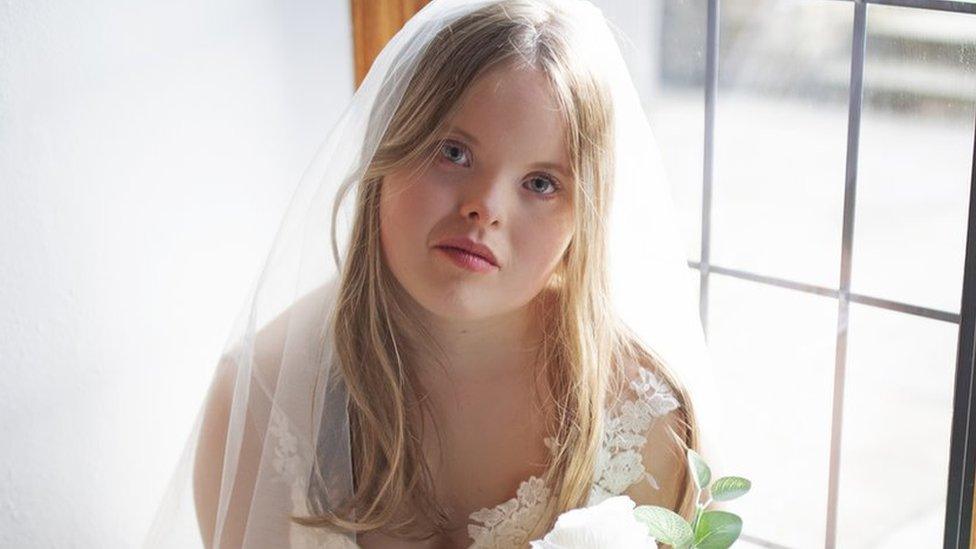
- Published10 January 2024

- Published28 October 2021
